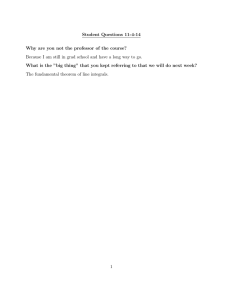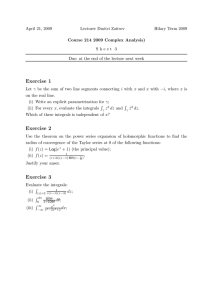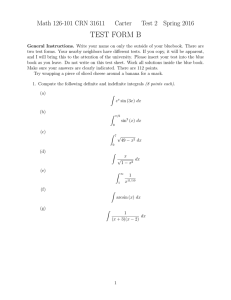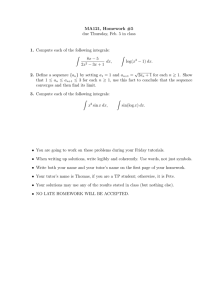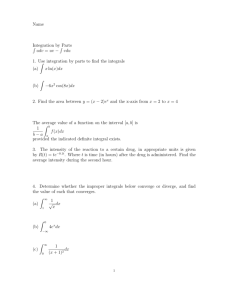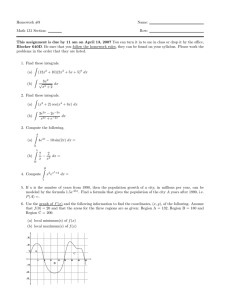Mathematics 103 — Spring 2001 Table of integrals
advertisement
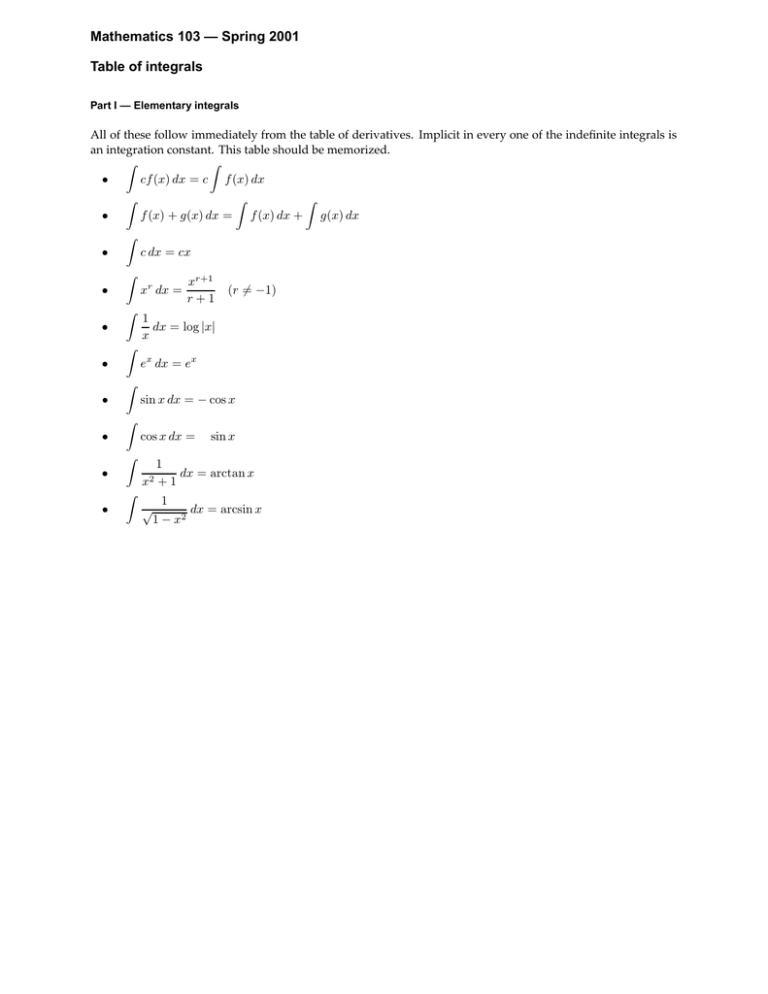
Mathematics 103 — Spring 2001 Table of integrals Part I — Elementary integrals All of these follow immediately from the table of derivatives. Implicit in every one of the indefinite integrals is an integration constant. This table should be memorized. • cf (x) dx = c f (x) dx • f (x) + g(x) dx = f (x) dx + • c dx = cx • • • xr dx = xr+1 r+1 (r = −1) 1 dx = log |x| x ex dx = ex • sin x dx = − cos x • cos x dx = • • sin x 1 dx = arctan x x2 + 1 √ 1 dx = arcsin x 1 − x2 g(x) dx Part II - A selection of more complicated integrals 2 Part II - A selection of more complicated integrals These begin with the two basic formulas, change of variables and integration by parts. Note that some of the formulas do not apply when a denominator is 0. • f (g(x))g (x) dx = • • f (u) du where u = g(x) (change of variables) dx du where u = g(x) (different form of the same change of variables) du f (x)g (x) dx = f (x)g(x) − f (x)g(x) dx (integration by parts) f (g(x)) dx = • f dg = f g − • • • f (u) ecx dx = ax dx = g df (different form of integration by parts) 1 cx e (c = 0) c 1 ax (a = 1, a > 0) log a log x dx = x log x − x • • • • • • 1 1 x dx = arctan x2 + a2 a a x − a 1 1 dx = log x2 − a2 2a x + a 1 x √ dx = arcsin 2 2 a a −x x 2 a2 arcsin(x/a) + a2 − x2 dx = a − x2 2 2 1 √ dx = log x + x2 ± a2 2 2 x ±a 1 dx? It depends, essentially, on the nature of the roots of x2 + bx + c = 0, but not explicitly. 2 x + bx + c We first complete the square to write b2 b2 +c− x2 + bx + c = x2 + bx + 4 4 2 2 b b = x+ +c− 2 4 If c − b2 /4 > 0, set it equal to a2 ; if < 0 equal to −a2 ; and if = 0 forget it. In any event you will arrive after a change of variables at one of the three integrals 1 dx, x2 + a2 1 dx, x2 − a2 1 dx, x2 1 2 x x ± a2 ± a2 log x + x2 ± a2 • x2 ± a2 dx = 2 n xn ecx • xn ecx dx = − xn−1 ecx dx etc. This is to be used repeatedly until you arrive at the case c c n = 0, which you can do easily.
